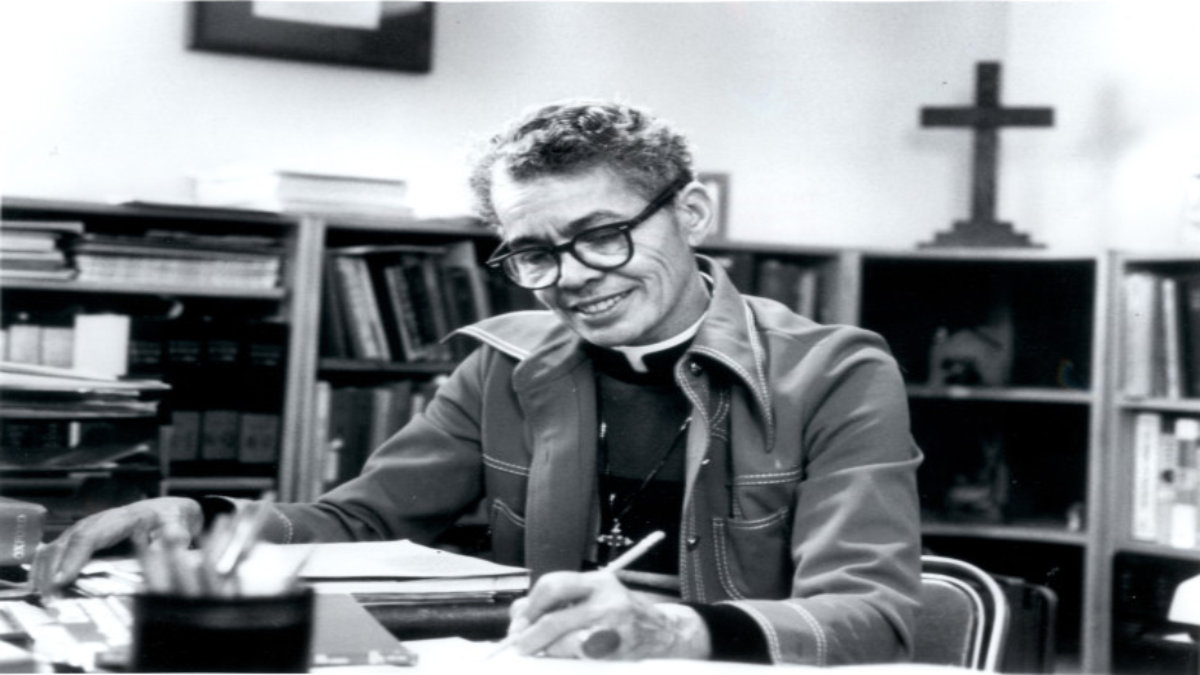This month we celebrate Pauli Murray. She is the descendent of a North Carolina slave and a slave owner. Her rich life as a lawyer, teacher, poet, feminist and women’s rights activist is a fitting tribute in celebration of Women’s Equality Day.
Pauli Murray was born in Baltimore, Maryland on Nov 20, 1910, the fourth of six children to nurse Agnes Fitzgerald and educator William Murray. Pauli was sent to live with her aunt and her grandparents, after her mother died in 1914 and her father, who suffered from depression, was confined to a state hospital.
Murray had a life of self discovery. After graduating from high school in 1926, she moved to New York City. To finance her education, Pauli worked various jobs while attending Hunter College, and in 1933 she received a degree in English Literature. Civil rights and the Civil Rights Movement were to become her life’s calling. And in 1938, she took up this cause when she tried to enter graduate school at the all white University of North Carolina. The media and letter-writing campaign she pursued in this effort brought her to the attention of First Lady Eleanor Roosevelt. The two would embark on a life-long relationship.
Murray fought to end segregation by boycotting lunch counters and public transportation. Later she defended the incarcerated in an effort to uplift those of color who had neither the resources nor voice to defend themselves.
Pauli was a gifted writer. Among her publications were two essays on civil rights: “Negroes Are Fed Up” in Common Sense, and an article about the Harlem race riot in the socialist newspaper, New York Call. “Dark Testament,” another of her poems, is among a larger collection, which has been republished over the years.
Murray possessed the single-minded tenacity to pursue education as a step towards combatting injustice, the injustices of segregation and inequality she witnessed as a person of color. The rigor of a law degree enabled Pauli to use the justice system to make more perfect her civil rights calling. She graduated from Howard University at the top of her law school class in 1944. Because of her educational experiences and work for civil rights, she crossed paths with people of influence such as Thurgood Marshall, Martin Luther King, Jr., and John F. Kennedy, who appointed her to the Commission on Civil and Political Rights. She would go on to be ordained an Episcopal Priest, the first Black person of color to hold this designation. Her death in July 1985 coincided with an autobiography “Song in a Weary Throat,” an American Pilgrimage in 1987.
Sources:
Bell-Scott, Patricia (2016). The firebrand and the First lady: portrait of a friendship: Pauli Murray and Eleanor Roosevelt and the struggle for social justice. New York: Alfred A. Knopf.
Murray, Pauli (1978). Proud shoes: the story of an American family. New York: Harper and Rowe.
Bell-Scott, Patricia (1987). Song in a weary throat: memoir of an American pilgrimage: Pauli Murray with new introduction by Patricia Bell-Scott. New York: Liveright Publishing Corporation

